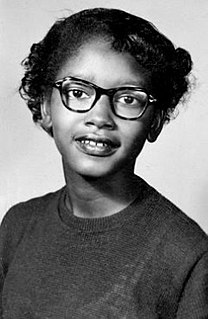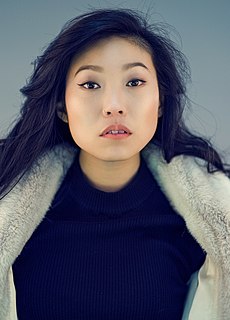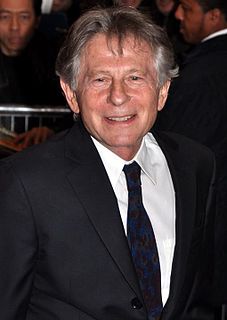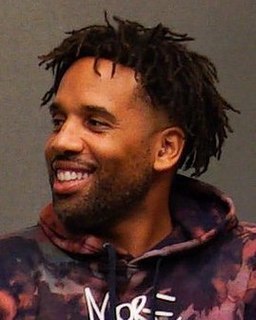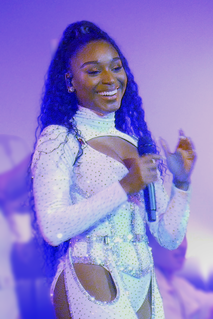A Quote by Claudette Colvin
I wanted the young African-American girls also on the bus to know that they had a right to be there, because they had paid their fare just like the white passengers.
Related Quotes
I don't regret the fervor, because I do believe, in the African American community but also for other communities, and I know from talking to people, for communities around the world, the election of an African American to the most powerful office on Earth meant things had changed, and not just in superficial ways. That in some irreversible way the world was different.
In the early 1970s in Atlanta, I attended what had formerly been an all-white school but had become a black school after integration and white flight. Perhaps because of this, the teachers created a curriculum that included a focus on African American literature and history year-round, not just in February.
When my kids were young, we used to go to a place called The Shrine of the Black Madonna in Houston. It was an African-American bookstore where they sold paintings, but they also had a room that was an all-purpose center. If you wanted to have a dance recital or anything that was related to the community activities, you could have it there.
There's no question that O.J. Simpson had been a substitute white man in America. He had gained honorary white status. He was not viewed by many white Americans as black. He was not seen as the African American athlete who was rebellious: Jim Brown, Muhammad Ali, Hank Aaron... He was accepted in golf clubs that were very tony.
